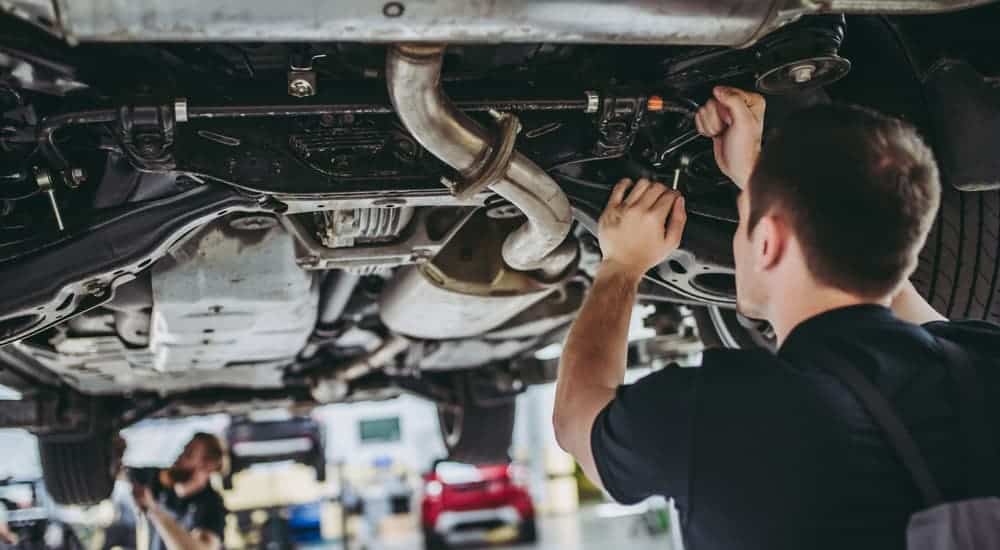For years, brand new cars were considered the ultimate investment. Drivers aspired to the moment when they had saved up enough to make a down payment on a brand new car. Over the decades, however, used cars have gained an edge over new ones. While the latest cars are still the trendiest, there are a variety of reasons to buy used. Generally, though, today’s drivers are choosing used cars because they want to save more money, they can do more research on used vehicles, and they want to drive it more. But let’s look a little closer at why buying a used car can make sense for you.
Because Your Money Matters
Money can’t buy you love or happiness, but it does pay the bills. For many of us, this is a Catch-22 situation in which we need reliable transportation to get to work to make money, but we can’t have too much of that money going back into reliable transportation. Anyone with a very specific budget can appreciate the value of a used car.
First, consider depreciation. A new car loses its value the moment you drive it away from the dealership. As the numbers on the odometer grow, the value of that vehicle drops. You can test this theory yourself, especially early in a new model year. Pick a make and model from the previous year. For the purpose of this example, let’s say a 2019 Honda Civic. Search the internet for “new 2019 Honda Civic.” Then search for “used 2019 Honda Civic.” In many cases, the difference in cost represents only a few thousand miles and minimal wear and tear. Sure, as the year wears on, dealerships will want those previous year models out of there, so you’ll find some great deals.
Still, there’s no denying that depreciation is a real thing. If you step even further back- say three to five years, you’ll see this even more clearly. Depending on the make, model, and trim that interests you the most, you may find a version from recent memory for just a fraction of the new model year price. Considering many car manufacturers release redesigns on a five-to-seven year rotation, that may mean you’re buying essentially the same vehicle. The used version just has a bit more experience.
This means that for the same money, you get more car. That is to say that perhaps with a lot of saving, a little negotiating, and some compromise, you could afford a brand new base model of the car of your dreams. Alternately, you could take that exact same budget and apply it to a higher trim package with more options on a two-year-old version of the car of your dreams. It’s still going to have all the base features that you love, but it will also have features you never imagined being able to get in your vehicle. Buying used means lower prices, and lower prices mean getting more car.

Because You Need to Know More
When thinking about money, often you think in terms of value and have a lot of questions regarding it. Luckily, the internet is filled with information, and when it comes to learning about a prospective new or new-to-you vehicle, it’s all at your fingertips. Want to know the differences between two trims? It’s out there. Want to compare the wheelbase measurements of two trucks? Just search. Prefer to watch a video in which someone drives your ideal car and tells you what it feels like? Press play. Anything you need to know about any car you’re thinking of buying is available to you, 24 hours a day, thanks to the internet.
Best of all, there are reviews. There are real people who take their own time to publish their experiences with their vehicles. This allows the experts – and you – to spot trends: The alternator on this particular trim goes out after 100,000 miles. The bass drops out on the radio when temperatures drop below freezing. The brakes are notoriously horrible in the rain. Any nuance of any vehicle can be tracked via user experience on the internet, and the benefit of used cars is that there will be more data, accumulated over a longer period of time. And eventually, these are the facts that will help you determine if a type of vehicle is truly a good value.
In fact, the advent of vehicle history reports has made it so you can determine if the exact vehicle you’re looking at is a good value. These services allow buyers to enter a car’s Vehicle Identification Number, or VIN, and search reports for any accidents, repairs, and more. You’ll know how many times the vehicle has been sold, and any major problems it has encountered to ensure the purchase is a good decision. There is so much information on used vehicles, whether specific to a model or an exact car that can result in an informative decision, making buying used better.
Because Reliability is Essential

You may be concerned about the reliability factor of your used car. This is reasonable, of course. You don’t want to pour your money into something that’s going to break down immediately. Interestingly enough, there are actually advantages to a used car in terms of reliability. Used cars have been running this long without issues, and, as we mentioned, the internet is filled with information, opinions, and experts who have filled you in on the shortcomings and potential problems. You know before you take the test drive what to look for, what has been replaced in a recall, and any repairs this particular vehicle has undergone.
Now, consider a brand new car. While you want to assume that it’s perfect as-is, perhaps it’s not. Parts can be recalled. Safety warnings can be issued. While the manufacturer does everything they can to prevent mechanical troubles, sometimes it’s not until these new models have been on the road for a year that wear-and-tear starts to uproot concerns. Generally, these issues are covered under warranty, but who wants the headache of having a brand-new car repaired six months after you’ve bought it?
Don’t Forget Certified Pre-Owned
There’s also a sweet spot, right in between used cars and new cars: the Certified Pre-Owned vehicles. CPO vehicles are more popular than ever, because they have not only used-car prices but also new-car warranties, giving them the best of both worlds.
It may seem confusing on the surface, but the premise is pretty simple. To be certified, a vehicle must meet specific criteria set by the manufacturer regarding age and mileage. For example, a CPO Chevy must be within six current model years, have less than 75,000 miles, a clean title, and have an acceptable vehicle history report. Each manufacturer has different criteria, too. A CPO Toyota must be younger than six years old, with 85,000 miles or less, and pass a 160-point in-person inspection, while other manufacturers may have even stricter requirements.
Once these vehicles are certified by the manufacturer, they are accompanied by factory-backed warranties for the powertrain or bumper-to-bumper coverage. They often include any free trials that were offered when the vehicle was new, such as OnStar, SiriusXM, SatNav, or roadside assistance programs. They also usually qualify for new car financing rates, though the price is more reflective of their pre-owned status. So, if you want some reassurance behind your used vehicle, CPO may be the best option for you.
Buy Used: It’s a Good Choice
Buying any vehicle can be a gamble. There are many unknowns, and history has taught us that anything can happen. Investing in a used car can be a fantastic decision, though, based on budget, knowledge, and reliability. So when you are in the market for your next vehicle, consider buying used.



